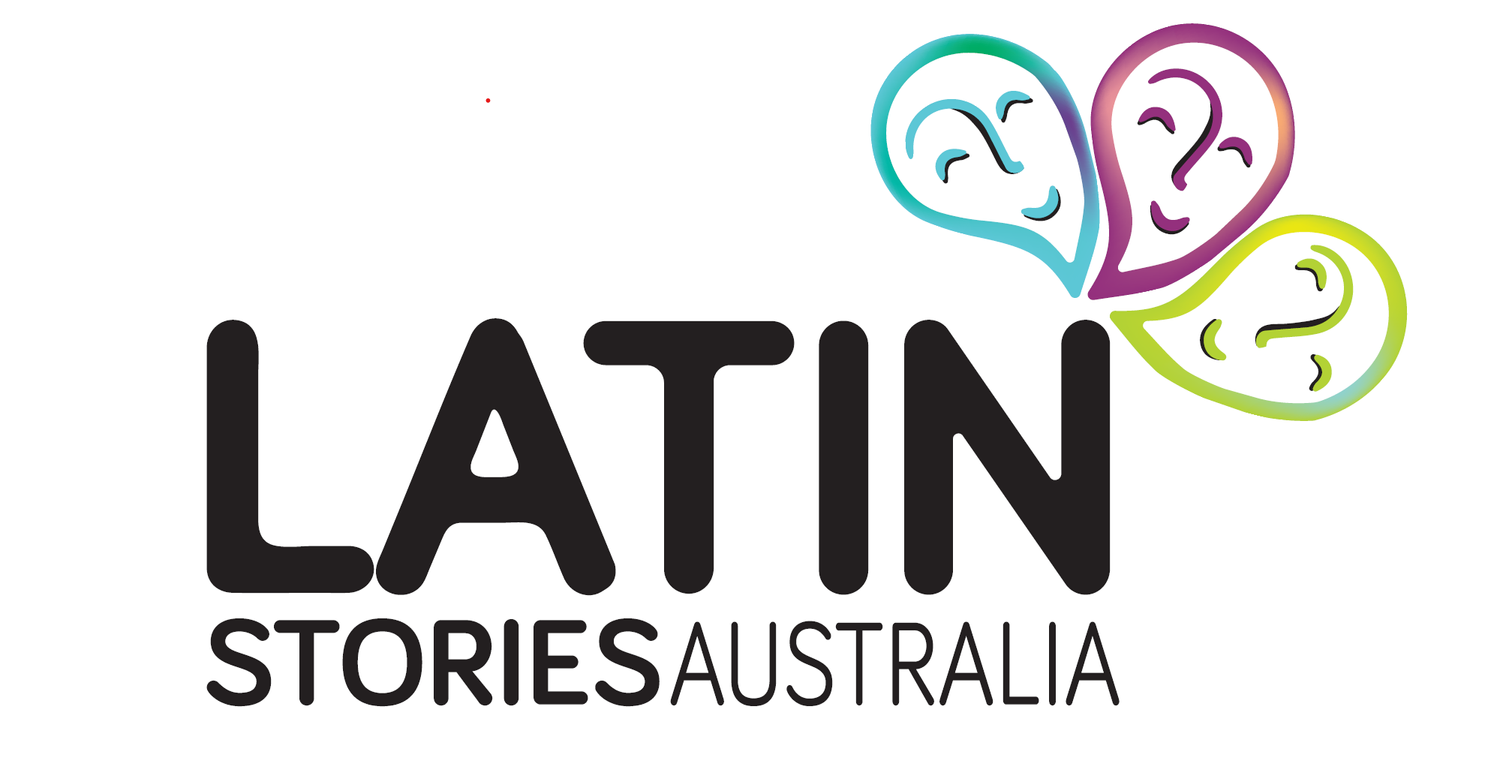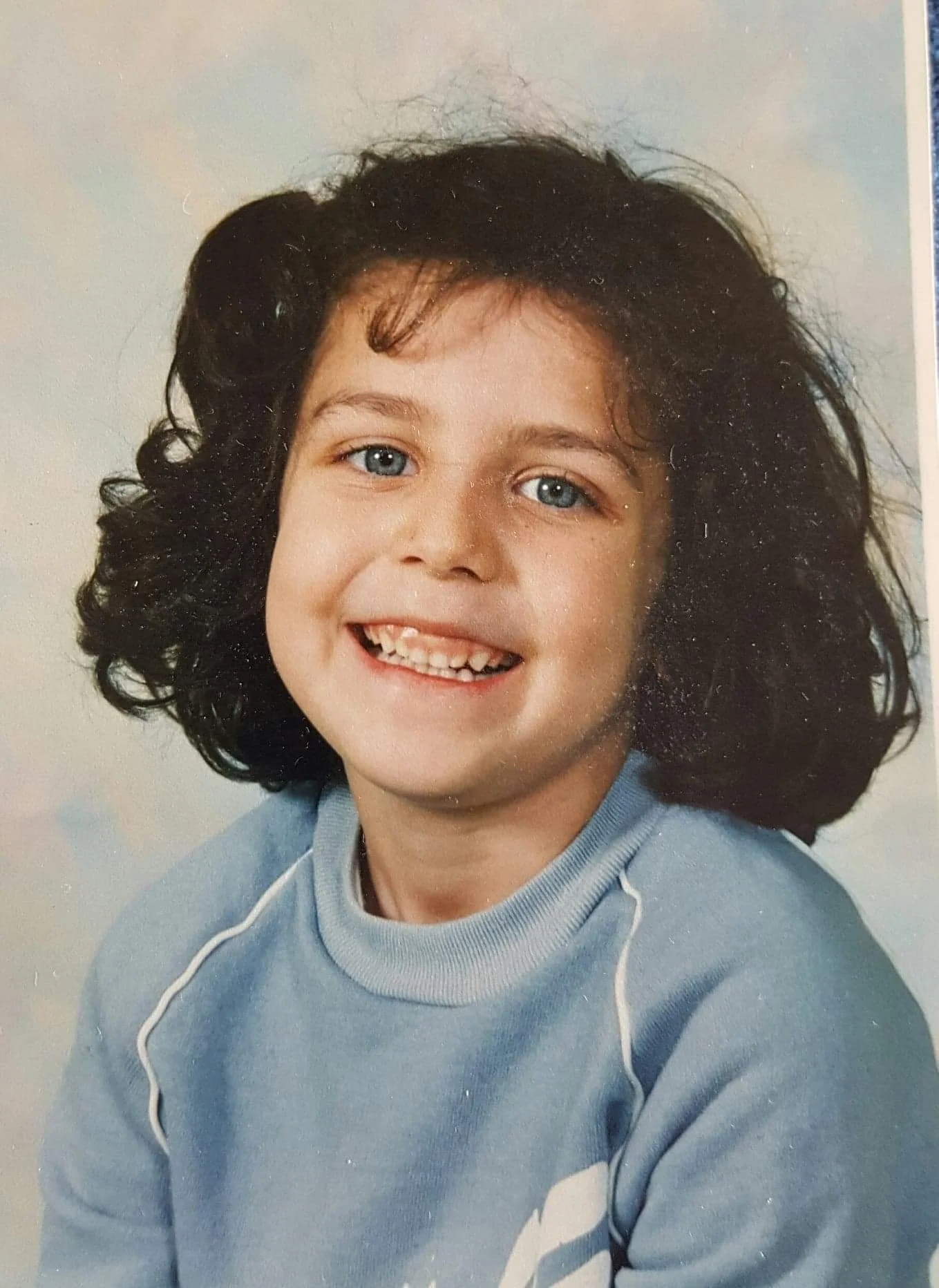Elena Brooks (nee Perez Lopez)
“Find your people, those that make you feel safe, happy and at home”
Elena Brooks
Country of Origin: El Salvador
Occupation: Senior Talent Acquisition Specialist at Spectrum Migrant Resource Centre. State of Residency: VIC. Favourite place in Australia: Daylesford Upon arrival: I found interactions puzzling at first.
Edited by Cristina Abela and Trini Abascal
Elena has worked for the last 10 years in not for profits such as the Australian Volunteers program for Australian volunteers overseas, and the Asylum Seeker Resource Centre. She currently works at Spectrum Migrant Resource Centre, helping migrants continue the professional career they had started in their country of origin here in Australia. From re-writing resumes, interview coaching and organising professional headshots for LinkedIn. Her passion is to help people bridge the cultural gap and being able to flourish in their new culture.
TELL US YOUR STORY
Elena as a kid
My family first emigrated in 1986, fleeing from the dangers of the civil war in El Salvador. I was only a toddler, but I vividly remember the war and some parts of the plane ride (my parents gave me sleeping pills so that I wouldn’t wake up and cry for my mother, who was in fact my grandmother). My parents had to leave me with her to keep me safe as they were persecuted by the militia: the feared Escuadrones de la Muerte and settled into Sweden. I was three when we left El Salvador and I would spend the next 23 years of my life in Sweden. For all intents and purposes, I can be considered Swedish – my English has a hint of Swedish accent, and I am told I am quite Swedish in my ways. But I am also Salvadorian, I speak Spanish fluently, and I make a good pupusa.
When I was 23 years old, I was given an opportunity to study in Barcelona for a semester to complete my Bachelor’s Degree in Political Science. It was in Barcelona I met my Australian husband and we ended up staying in Barcelona together for a few years before finally deciding that we didn’t want to live in Spain. Long story short, at 27 years of age, I found myself emigrating yet again, this time to the land down under. My husband is from Melbourne’s western suburbs and that’s where we settled down. I immediately felt like home as it was an eclectic mix of cultures. We arrived on Cup Day in 2010 and I remember wondering why everyone was so dressed up!
CHALLENGES
Lack of Australian experience - Whilst I had years of experience in my field of work (HR) I found it hard to be considered for an equivalent role, having no “Australian experience”. In the end, I accepted a casual position that was step down in a larger organisation and I worked my way up. In the end, this “step down” was actually hugely advantageous, although I didn’t know it at the time: I was a HR contract administrator and this gave me a “crash course” in Australian contract law and the different employment types, the National Employments standards, awards and enterprise agreements.
Connections - I initially found it hard to make lasting connections and friendship with people. I tried to be very friendly, and people were friendly back but very guarding of their boundaries between work and social life. Culture is an accumulation of subtleties, and eventually, with time, you learn how to “walk the walk”. You also find “your” people, often other international people in search of similar connections. I also found that, when I became a parent, there were a lot of parents who were searching for similar connections.
Identity - Before long, you become a bit of a hybrid (“No eres de los unos, pero tampoco de los otros”) – you are a sum of your experiences and get to pick and choose between your cultures. Or maybe, you are just exotic everywhere you go? To my point above, my husband had a chuckle every time someone asks me where I am from: my brain disseminates what is is they’re asking me : is it my nationality? Are they trying to suss out where my accent is from? It it because of my appearances? So, sometimes I just answer “I’m from El Salvador” (and they go: “Where?” and I say “2 countries below Mexico” and they say “oh yes, Mexico. Tequila! Arriba Arriba!” or something similar) and sometimes I say “I’m from Sweden” (and they go “oh yes, you guys make that chocolate” and I say “no sorry, that’s Switzerland”) and sometimes ..I just tell this very lengthy story on how I, a Salvadorian, ended up in Australia, via Sweden.
Distance to loved ones - The physical distance to my loved ones continues to be a challenge, 12 years on. The pandemic exacerbated the distances but keeping in touch via tech helps. When we left El Salvador in 1986, the only way of getting in touch was via a terrible phone line or sending cassette recordings that would arrive 3 months later.
Elena and her sister in El Salvador
CONTRASTS
The human connection - I sometimes miss the “warmth” in the Latino cultures: we tend to form instant connections, invite people in for dinner at the drop of a hat and just know everyone in the neighbourhood. My husband gets super puzzled when I talk about “tia” and “tio” and he asks me “how are you related to them?” and I say “I’m not, they lived down the road from us and are originally from Argentina”. I still sort of live by that philosophy, I’m the crazy lady who talks to everyone and knows everyone in the neighbourhood.
Coming from 2 cultures at the end of the Spectrum (my Latin American culture where I have learnt that everyone is a potential friend - where my mother used to invite complete strangers to break bread with us and formed friendships with in many interesting ways - and my Swedish culture - where people are very reserved and barely speak to people they don’t know), I found Australians to be chatty and friendly when it came to casual interactions, but it was very difficult to find actual friends at first – many Australians retain their inner circle of friends from when they were in school, and although always friendly and helpful, only calls this inner circle their “friends”. Culture and interactions in a new culture is something that you need to decipher and it took me a while to immerse myself into the Aussie way.
Food is love and connection- In some other cultures that have gathered in Australia, such as Latino cultures, food is love and connection. I miss gathering for the sake of food. My grandmother used to make an ollada de tamales, and the occasion would simply be that “abuelita made tamales”. No times or arrangements were made, everyone simply rocked up at the time they wanted and it ended up being this huge, noisy gathering where kids were running around, the adults were talking politics and everyone would eat tamales. I miss this. I haven’t quite found my Salvadorian community here yet.
Storytelling - I find that storytelling is a bit of a dying art in my adopted country. In my family, ancestry and oral storytelling was always really important. My grandmother would tell me about my uncle Milton, who died in the Korean war, or about the time she got off the train in Jiquilisco and was gifted a cinema by a guy who could no longer run it. I know all the stories of my ancestors, and my children are named after people I have never met, who died long before I was born, but I feel is a big part of me, as I grew up hearing their stories. I can only hope that I am able to impart these stories to my children in the same vivid manner as my abuelita and my mother did.
PIECE OF ADVICE
Find “your” people - I’m not talking about “paisanos”, same nationalities. I am talking about people that make you feel safe, happy and at home. This could be cross culturally. You can connect with people at many levels, or paradoxally not connect at all with people who share many similarities to you. Find people who can help you navigate your new culture, and who can explain cultural disconnect in a way you understand. Learn and observe, be open to new things.
Be open - I think that coming into a new place with the view to be open and learn, but to also be open to impart knowledge is a good starting point. Learn about Australia’s first peoples, as well as modern society. Ask questions, be open to new points of view. Be open to opportunities, especially work opportunities, although they may not be exactly what you were hoping for. It may be that you can work your way to where you want to be.
Never give up! - Loneliness and feeling out of place is normal at first. But it is important not to give up. Find places where you can meet people who share similarities to you. Meet Up Groups, local Facebook pages, or cultural associations. You will meet many people you don’t connect with, and that’s ok. Keep trying! Accept a job that isn’t quite what you strive for, but with a goal in sight. And accept that there is always something to learn.
Elena and Jaime with the kids
IN THE NEXT FEW YEARS…
After a turbulent childhood and much migration, Elena is looking forward to some stability and continuity. In 5 to 10 years, she is hoping to still be in suburbia, giving her children some stability. She is hoping that whatever she is doing, she is still doing work that she believes in, that goes towards a just, peaceful and inclusive world. And she hopes that her family is safe and happy, something, she believes, we tend to take for granted unless we have experienced displacement or strife. Excitement and adventure is fun, but when you have spent much time in the storm, all you want is to navigate calm waters.




